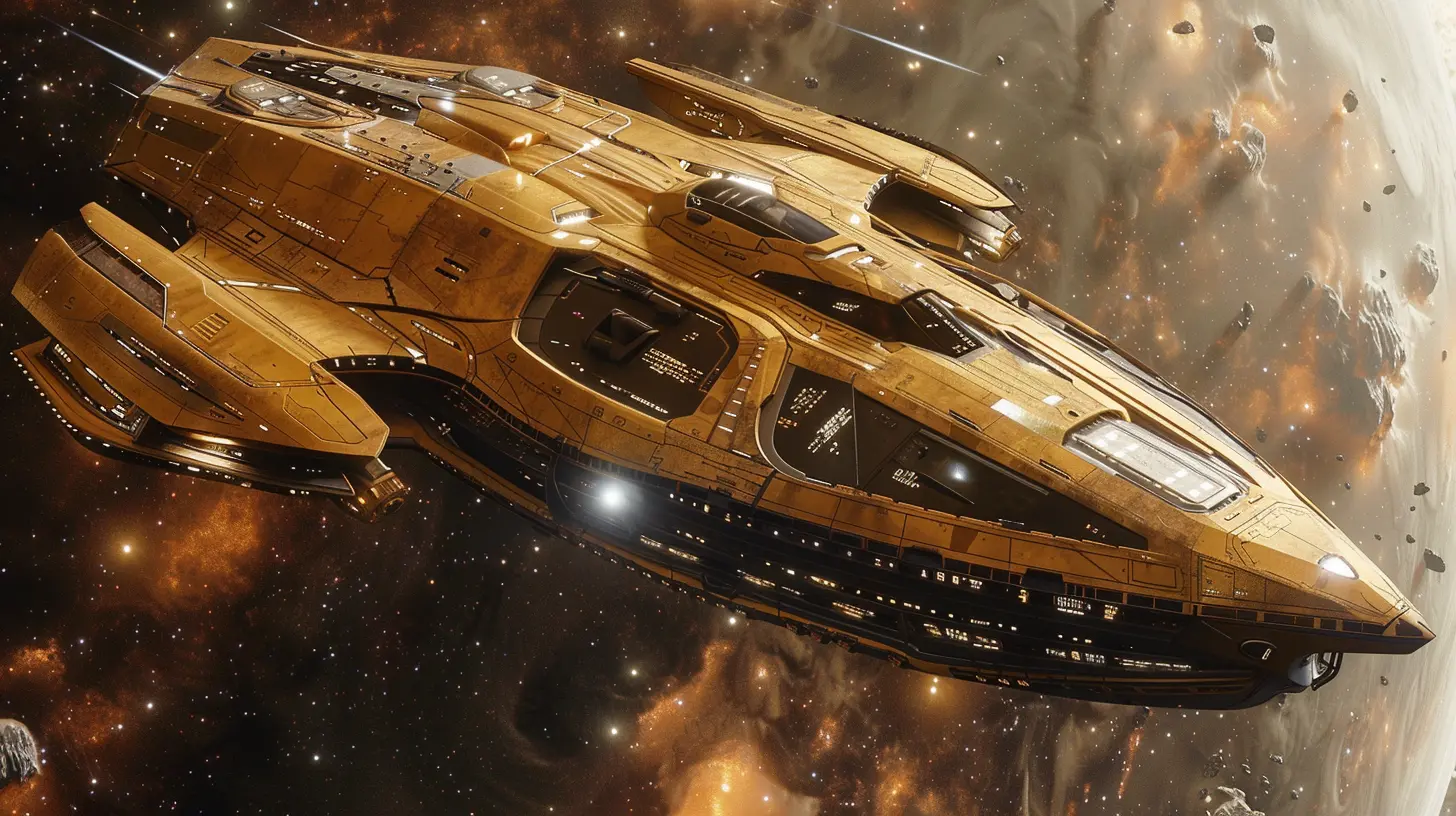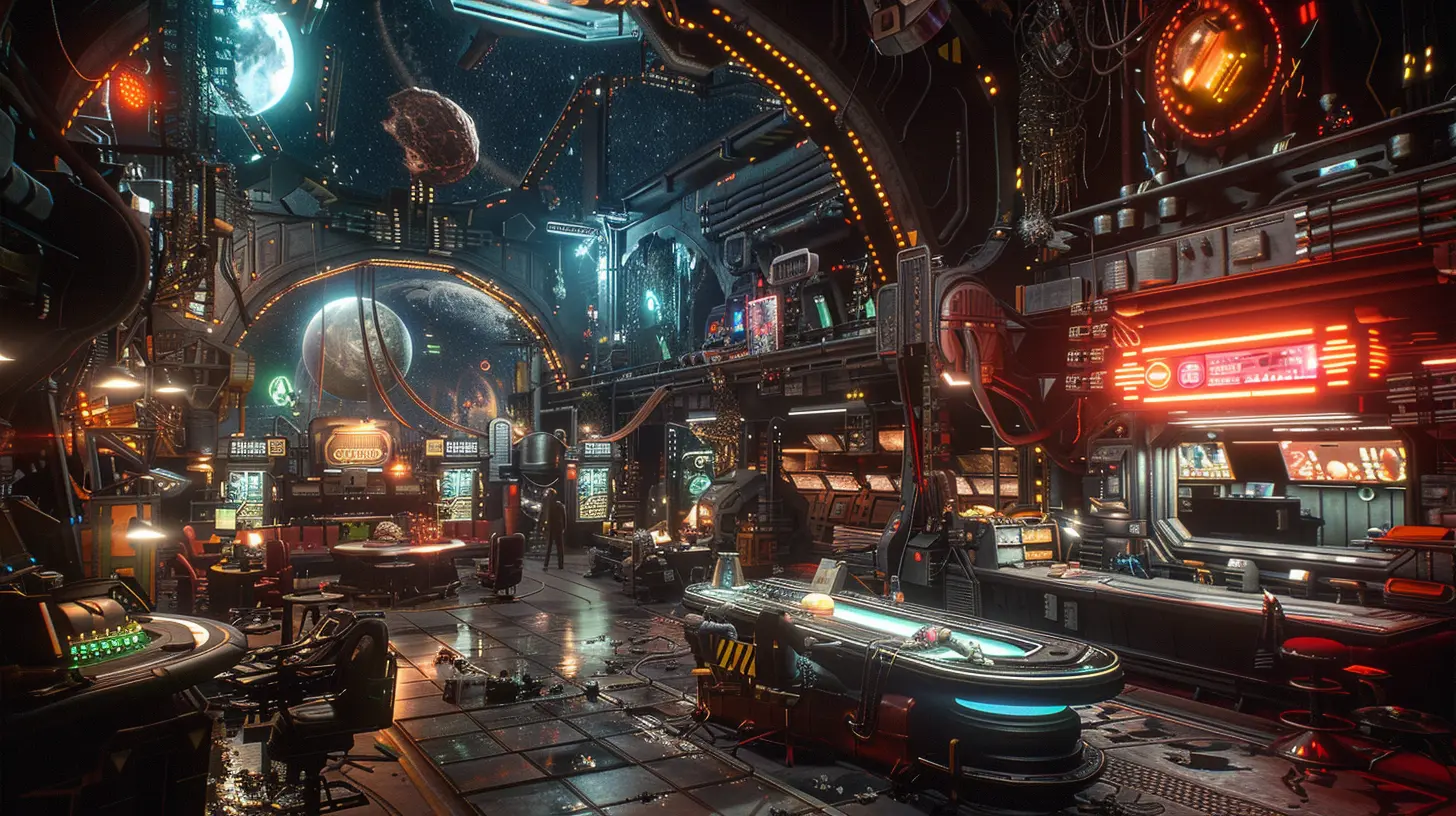Adventures in Space: Sci-Fi Games That Redefine the Genre
4 November 2025
Isn’t there something magical about space? The infinite stars, the vast unknown, the idea that something—someone—might be out there. For decades, sci-fi games have taken us on wild rides across the galaxy, filling our imaginations with possibilities. But not all space games are created equal. Some shoot for the stars and actually make it, redefining what it means to be part of the sci-fi genre.
Whether you're a space veteran who knows the difference between a warp drive and a hyperdrive, or just dipping your toes into the cosmos, this article is for you. We're diving into sci-fi games that didn’t just entertain—they transformed the genre. Buckle up, because liftoff starts now!
Why Sci-Fi Games Have a Gravitational Pull
Before we start hopping from one planet to another, let’s take a moment to understand why sci-fi games captivate us so deeply.Space is unknown. It’s the last frontier. It holds mysteries we can’t explain, and sci-fi games let us explore those mysteries from the safety of our living rooms. The genre offers a unique mix of action, philosophy, storytelling, and imagination. You’re not just playing a game; you’re living a dream where anything is possible.
But what happens when a game pushes the envelope? What sets a game apart from the rest of the fleet?
The Stars of the Genre: Sci-Fi Games That Reshaped Space Gaming
Let’s break down the big hitters—games that didn’t just live in space but made space the main character.1. Mass Effect Series – Emotional Space Opera at Its Finest
If Bioware’s Mass Effect didn’t make you cry, laugh, or question your morality… were you really playing it?This series redefined character development in sci-fi gaming. It wasn’t just about shooting aliens or piloting a cool ship—it was about relationships, decisions, and consequences. Shepard wasn't just your avatar; they were you with a laser cannon and a complex love life.
The game’s ability to weave political commentary, alien cultures, and ethical dilemmas into a seamless narrative was groundbreaking. Players didn’t just react to the story—they shaped it, making Mass Effect a beacon for interactive storytelling in space.
2. No Man’s Sky – From Disaster to Redemption
Let’s be real—No Man’s Sky launched like a busted rocket. People were not happy. But credit where it’s due: Hello Games turned it all around and turned their failure into one of the most remarkable comeback stories in gaming.Now? It’s a jaw-dropping universe of endless exploration. Imagine flying from one procedurally generated planet to another, naming species, building bases, and uncovering mysteries. It’s like Minecraft had a baby with Interstellar—and it works.
With constant updates, deep narrative arcs, co-op gameplay, and VR support, No Man’s Sky redefined persistence in space games. It showed us that with enough passion (and patching), a game could become something more—something magnificent.
3. Starfield – The New Frontier of Next-Gen Exploration
Bethesda’s Starfield isn’t just another RPG with space slapped on top. It’s a bold attempt to create a universe rather than a game. With over 1,000 planets, deep faction conflicts, intricate NPC stories, and the charm of Skyrim in space, Starfield shot for the moon.Does it live up to the hype? That depends. But one thing’s for sure—it’s ambitious. It doesn’t just let you walk on alien worlds; it lets you live there, build there, and craft your own narrative from scratch. It’s the sandbox of your cosmic dreams.
If Mass Effect gave us emotional depth, Starfield gives us scale.
4. Elite Dangerous – The Realistic Space Odyssey
Some space games are about laser fights and pew-pew moments. Not Elite Dangerous. This game is a space simulator, and by simulator, we mean it’s the closest thing to actually flying a spaceship without NASA calling you up.You can trade, mine, fight pirates, or simply explore the Milky Way. And yes, it’s the actual Milky Way—every one of its 400 billion star systems is mapped in the game. No biggie, right?
The attention to scientific accuracy makes it a joy for space enthusiasts. And with VR support? It's an out-of-body experience... literally.
5. Dead Space Series – Terror Among the Stars
Not all space adventures are heroic. Sometimes, space is horrifying.Dead Space took the claustrophobic dread of being alone in space and jammed it full of necromorphs (a.k.a. nightmare fuel). It wasn't just a shooter; it was a psychological thriller wrapped in zero gravity.
What made Dead Space game-changing was its atmosphere. Every creak, flickering light, and scream in the distance made your skin crawl. It reminded us that space isn't always wonder—it’s also danger and dread. And boy, was it memorable.
Rising Stars: The Upcoming Games Shaping Sci-Fi’s Future
Let’s not forget the newcomers. The genre is evolving, and with upcoming titles pushing innovation and creativity, the future looks stellar.1. The Expanse: A Telltale Series
Based on the hit show (and books), this game dives into deep moral choices, complex politics, and gritty realism. Telltale’s decision-based gameplay combined with The Expanse’s raw storytelling feels like a match made in the stars.2. Star Citizen – The Infinite Alpha
Is it a game? A dream? A pipe fantasy? Star Citizen has been in development for what feels like forever. But if it ever lands, it promises one of the most ambitious sci-fi universes ever created.It merges the sim-heavy depth of Elite Dangerous with the cinematic flair of Starfield. It may still be pie in the sky—but what a sky it is.
What Makes a Sci-Fi Game Truly Revolutionary?
So what’s the secret sauce? What turns a space game from just another intergalactic shooter into a genre-redefining masterpiece?Let’s break it down:
- Emotional Connection – Games like Mass Effect and The Expanse grip you with characters you care about.
- Massive Worldbuilding – Think No Man’s Sky and Starfield, where lore and environment blend seamlessly.
- Player Agency – Your choices matter. Whether it's saving an alien race or nuking a planet, the best sci-fi games let players shape their cosmos.
- Immersion & Atmosphere – Games like Dead Space show how vital sound, visuals, and storytelling are in creating a believable universe.
- Innovation – Procedural generation, VR immersion, or realistic physics—as long as the game dares to try something different, it earns a place among the stars.
Why We Keep Coming Back to Space
Maybe it’s the mystery. Maybe it’s the freedom. Or maybe, just maybe, it’s the hope that among the stars, things could be better. Sci-fi games give us more than cool gear and faster-than-light travel—they give us stories worth living, even if just for a few hours.In a world that often feels chaotic and uncertain, stepping into a spaceship and plotting a course for the Andromeda galaxy gives us something precious: wonder.
And let’s be honest. Who doesn’t want to say, “Engage” and make the jump to lightspeed?
Final Thoughts
Sci-fi games have come a long way—from pixelated starships to fully-rendered galaxies with deep, branching narratives. The best ones don’t just put you in space—they make you feel like you belong there.So next time you boot up your favorite sci-fi title, remember: you're not just playing a game. You're joining a tradition of storytellers, dreamers, and pioneers. You're charting the unknown, one planet at a time.
And if you find a game that makes you stare up at the night sky afterward, wondering what's out there? That’s a game that redefined the genre.
all images in this post were generated using AI tools
Category:
Game ReviewsAuthor:

Brianna Reyes
Discussion
rate this article
1 comments
Quincy Bailey
Oh, fantastic! Just what we needed—another set of games set in space. Because clearly, the galaxy was lacking in pixelated astronauts and intergalactic battles. I’m sure this time they’ll finally answer the burning question: how many space dragons can you fit into a single spaceship? Groundbreaking stuff!
November 8, 2025 at 6:07 AM

Brianna Reyes
Thanks for your perspective! While space games are popular, they continue to evolve and explore new themes and mechanics. Excited to see where creativity takes us next!


